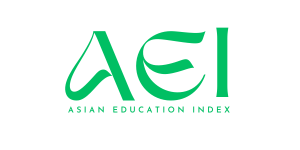Development and evaluation of the effectiveness of interdisciplinary modules of the russian language for non-philological specialties
DOI:
https://doi.org/10.62480/jpip.2024.vol32.pp25-31Keywords:
interdisciplinary training, non-philological specialties, professional vocabularyAbstract
The article is devoted to developing and evaluating the effectiveness of interdisciplinary educational modules of the Russian language for students of non-philological specialties. The study is based on the hypothesis that integrating the Russian language into professional disciplines contributes to deeper and more functional language acquisition and improves students' professional competencies. The paper presents methodological approaches to creating educational modules that combine language learning with relevant topics and tasks specific to the chosen profession. Performance criteria are described, including qualitative and quantitative indicators, such as mastering professional vocabulary, improving communication skills in professional contexts and increasing student motivation. The authors analyze the results of the pilot application of the developed modules in several higher educational institutions, assessing their impact on students' educational process and professional development. The article also contains recommendations on adapting modules for various specialties and offers methods for evaluating their effectiveness in dynamics. The study demonstrates how an interdisciplinary approach can enrich the educational process and contribute to a deeper integration of the Russian language into specialized education
References
Blinov, V. I. (Ed.). (2019). Didakticheskaia kontseptsiia tsifrovogo professional'nogo
obrazovaniia i obucheniia [Didactic concept of digital vocational education and training].
Pero. (In Russ.)
Borrego, M., & Creamer, E. G. (2007). Gender and disciplinary differences in experiences
with interdisciplinary collaboration. Journal of Women and Minorities in Science and
Engineering, 13(4), 353–376. https://doi. org/10.1615/JWomenMinorScienEng.v13.i4.30
Borrego, M., Boden, D., & Newswander, L. K. (2014). Sustained change: Institutionalizing
interdisciplinary graduate education. Journal of Higher Education, 85(6), 858–885.
http://doi.org/10.1353/jhe.2014.0033
Dmitrieva, N. K. (2019). Interdisciplinary approach principles’ implementation in the
process of teaching professionally-oriented foreign language. Vestnik of Kostroma State
University Series: Pedagogy. Psychology. Sociokinetics, 2, 168–172. (In Russ.)
https://doi.org/10.34216/2073-1426-2019- 25-2-168-172
Gruzkova, S. Y., & Kamaleeva, A. R. (2013). Case method: The story of the development and
use of the method in education. Russian Journal of Education and Psychology, 6(26). (In
Russ.) https://doi.org/10.12731/2218- 7405-2013-6-24
Kezar, A., & Elrod, S. (2012). Facilitating interdisciplinary learning: Lessons from Project
Kaleidoscope. Change: The Magazine of Higher Learning, 44(1), 16–25.
https://doi.org/10.1080/00091383.2012.635999
Kutuzova G. I. Interdisciplinary connections in teaching foreign students / G. I. Kutuzova. –
St. Petersburg : Publishing House of the Polytechnic University. unita, 2008. – 376 s
Maksimova V. N. Interdisciplinary connections in the educational process of a modern school
: [studies. manual on a special course for students of pedagogical institutes] / V. N.
Maksimova. – M. : Enlightenment, 1987. – 160 p.
Solovova E. N. Methods of teaching foreign languages : basic course : a manual for students
of pedagogical universities and teachers / E. N. Solovova. – M. : AST : Astrel, 2008. – 238 p.
Kitikar, O. V., Cheban, I. B., & Gotko, I. V. (2018). Problem of interdisciplinarity in the
pedagogical studies. Problems of Modern Pedagogical Education, 61–3, 101–104. (In Russ.)
Osmolovskaya, I. M., & Krasnova, L. A. (2017). The problem of interdisciplinarity in learning
process studies. The Education and Science Journal, 19(7), 9–24. (In Russ.)
https://doi.org/10.17853/1994-5639-2017-7-9-24
Pokrovskaya, E. M., Raitina, M. Yu., & Suslova, T. I. (2017). Interdisciplinary convergence
in the University educational environment. Proceedings of TUSUR University, 20(3), 234–
(In Russ.) https://doi. org/10.21293/1818-0442-2017-20-3-234-237
Downloads
Published
Issue
Section
License

This work is licensed under a Creative Commons Attribution-NonCommercial 4.0 International License.
User Rights
Under the Creative Commons Attribution-NonCommercial 4.0 International (CC-BY-NC), the author (s) and users are free to share (copy, distribute and transmit the contribution).
Rights of Authors
Authors retain the following rights:
1. Copyright and other proprietary rights relating to the article, such as patent rights,
2. the right to use the substance of the article in future works, including lectures and books,
3. the right to reproduce the article for own purposes, provided the copies are not offered for sale,
4. the right to self-archive the article.













